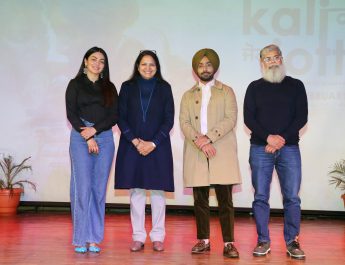NEW DELHI: The Supreme Court on Tuesday gave a rude shock to former Maharashtra Chief Minister Uddhav Thackeray’s group, rejecting its plea to stop the Election Commission from deciding Chief Minister Eknath Shinde’s claim as the real Shiv Sena.
A Constitution Bench, headed by Justice D Y Chandrachud, dismissed the application for stay filed by the Thackeray group after a day-long hearing.
We direct that there would be no stay of the proceedings before the Election Commission of India. Accordingly, the Interlocutory Application (of Thackeray group) is dismissed,” said the Bench, which also comprised Justices M.R. Shah, Krishna Murari, Hima Kohli and P.S. Narasimha.
It was hearing an interim application of the Thackeray group to restrain the Election Commission from deciding the claim of the Eknath Shinde group for recognition as the official Shiv Sena party.
The Bench asked Thackeray group’s senior counsel Kapil Sibal as to in what capacity did Shinde approach the EC with his claim as the real Shiv Sena. Sibl contended that Shinde cannot approach the EC, once he has incurred disqualification. “I have challenged the very locus of the person who moved the EC,” Sibal submitted.
In response to other query, Sibal aid Shinde’s claim is based on the Election Symbols (reservation and Allotment) Order and the decision of the Supreme Court in the Sadiq Ali case. He said the Sadiq Ali case was, however, decided at a point when the tenth schedule on disqualification was yet to be introduced in the Constitution.
Sibal contended that Shinde has incurred disqualification as his various acts amount to voluntarily giving up the party membership inder paragraph 2(1)(a) of the Tenth Schedule and he also violated the party which as per paragraph 2(1)(b).
The bench made that the issue is in relation to the ambit of jurisdiction of the Speaker under the tenth schedule and ambit of jurisdiction of the Election Commission is with respect to the Symbol Order.
“The political party is a much wider configuration than the legislative unit of that party which consists of the elected members…does the dispute in relation to former in the legislative unit affect the authority of Election Commission. That is the heart of the matter,” Justice Chandrachud observed.
Senior Advocate Dr.Abhishek Manu Singhvi supplemented Sibal’s arguments for the Uddhav group. He highlighted the merger with another political party is the only defence under the Tenth Schedule. There is no concept of “split” under the anti-defection law, he said.
Senior Advocate Neeraj Kishan Kaul, appearing for the Eknath Shinde group, submitted that the Speaker’s power is only in relation to the legislature party and it cannot circumscribe the Election Commission’s powers under the Symbol Act. Moreover, even if the situation is not covered under the Symbols Order, the EC can invoke its plenary powers under Article 324 to handle the present situation, he contended, adding that over 1.5 lakh party members have sent their representation to EC, supporting the Shinde Group.
Kaul said the inquiry under the Tenth Schedule and the Symbols Order are different as the Speaker’s power is limited to the majority in the House.
What about a person disqualified moving the EC? Kaul submitted that “till I am disqualified, I am entitled to participate in the proceedings of the House.” He said: “My whole cse is that I have not given up the membership. We represent the overwhelming majority within the party and we have not left the party. So who will decide if I voluntarily gave up the membership? Until the Speaker decides, how can I be restrained?”
Senior advocate Maninder Singh, appearing for the Shinde Group, said differences and dissent are a part of the intra-party democracy and the EC is empowered to decide in relation to the rival sections or splinter groups under Rule 15 of the Symbol Order.
Senior Advocate Mahesh Jethmalani, appearing for the Shinde group, submitted that there is no concept of “deemed disqualification”. The Governor, while inviting a party to form government, cannot take into account any potential disqualification as his primary concern is to ensure a stable government.
Solicitor General Tushar Mehta, appearing for the Maharashtra Governor, submitted that the Election Commission should be allowed to discharge its duties. “This is a political question and it is not for the first time that such a split has happened and decision taken as to which faction is the real party,” he said.
Senior Advocate Arvind P Datar, appearing for the ECI, submitted that the powers of the ECI and the Speaker are entirely different. If political party is a larger set, legislature party is the subset of members of political party who are now elected and form part of the House.
“It is a matter of common sense that a person who has given up the membership will not apply under the Symbols Order…only a person who has not left the party will make that application,” Datar submitted.
“ECI is free to decide as to how it tests the majority. ECI takes a compliant, then submission, then evidence, affidavit and then enquiry. Kindly see my notice, it has nothing to with the larger issue as the EC notice makes no reference to the membership of the House,” Datar added.
It was on August 23 that a 3-judge Bench then led by Chief Justice N V Ramana had referred eight issues arising out of the political rift in the Shiv Sena to the Constitution Bench, including what are powers of the EC with respect to deter an ex parte split within a party.
###





